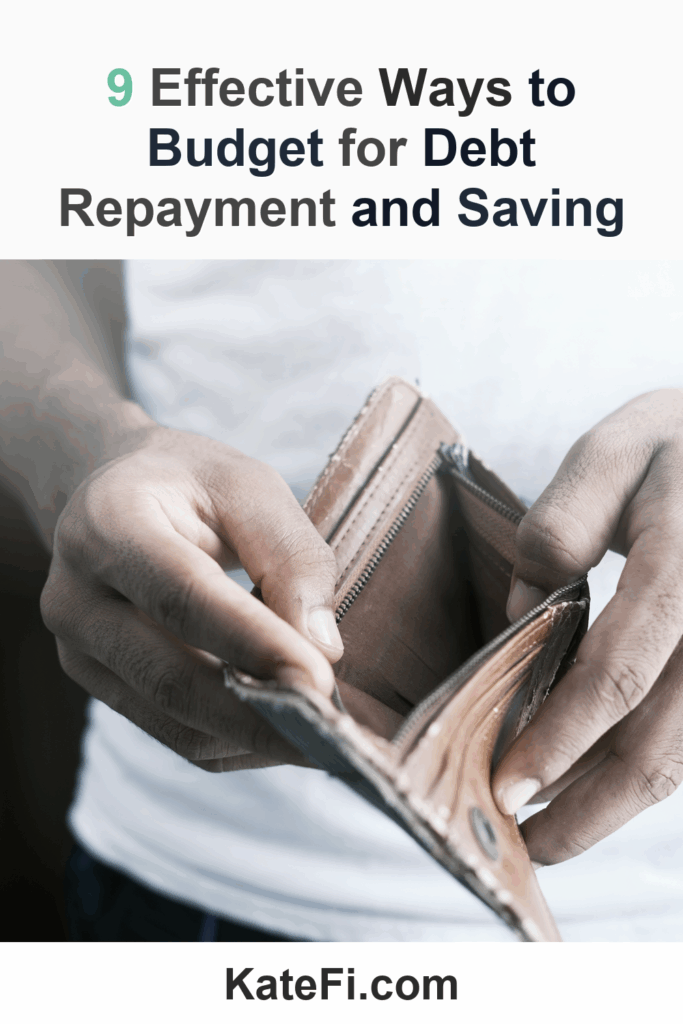How to Communicate Effectively with Creditors During Negotiations
Negotiating with creditors can feel daunting, especially when you’re already facing the pressures of debt. However, effective communication during these negotiations can lead to beneficial agreements, lower payments, or even debt settlements. This post not only shares a case study of someone who successfully navigated this process but also offers practical tips and strategies to help you gain confidence in your conversations with creditors. We’ll also touch on how side-income micro-wins can significantly accelerate your debt payoff, and why reaching out to a counselor at KateFi for a free consultation can be a game-changer.
Love our content? Show your support by following us — pretty please!🥺
FOLLOW ON PINTEREST
Hi! I’m Kate, the face behind KateFi.com—a blog all about making life easier and more affordable.
A Case Study: Sarah’s Journey to Debt Relief
👉 Start Your Free Debt Relief Review
Not available in IL, KS, OR, TN, UT, WV.
Meet Sarah, a 32-year-old marketing professional. Sarah found herself in a sticky situation—after an unexpected job loss and a series of medical emergencies, her credit card debt skyrocketed to over $15,000. The stress was overwhelming, but Sarah was determined to take control of her financial situation.
The Turning Point
One day, Sarah decided to face her creditors instead of avoiding them. With a combination of nerves and determination, she began making phone calls. Armed with a plan and a clear understanding of her financial landscape, she made the leap.
The Preparations
Before reaching out, Sarah gathered essential documents:
- A breakdown of her income and expenses
- Copies of her credit statements
- Information on her debts, including creditor names, balances, and interest rates
These documents allowed her to provide concrete information during negotiations and showcased her commitment to resolving her debts.
Negotiation Techniques Used by Sarah
- Empathy and Transparency: Sarah approached her creditors with honesty about her financial situation. Instead of avoiding the truth, she expressed her commitment to paying off her debts, but explained her current inability to meet minimum payments.
- Requesting Lower Payments: Instead of asking for debt forgiveness outright, Sarah requested lower monthly payments, citing her recent job loss. By suggesting a temporary adjustment, she opened the door for a cooperative conversation.
- Offering Lump-Sum Settlements: For some creditors, Sarah suggested a one-time lump-sum payment in exchange for settling her debt. She used her savings and side-income efforts to make a small but significant payment, showcasing her willingness to pay something rather than nothing.
- Follow-up and Persistence: After her initial conversations, Sarah made it a point to follow up. A few weeks later, she contacted her creditors again to see if they’d considered her proposals, demonstrating her commitment and persistence.
Through her effective communication, Sarah managed to negotiate lower interest rates, reduce her monthly payments by 40%, and settle one of her debts for half of the amount owed.
✅ See If You Qualify for Debt Relief
Lessons Learned from Sarah’s Experience
Sarah’s story provides key lessons that can help you during your own negotiations. Here are several takeaways:
- Preparation is Key: Have all your financial documents organized. The more prepared you are, the more credible you appear to creditors.
- Open Up the Conversation: Don’t be afraid to express your challenges. Crediting agents often appreciate honesty and may offer solutions you hadn’t considered.
- Explore Side-Income Opportunities: While negotiating, consider ways to generate extra income—like freelancing, gig work, or selling items you no longer need. These micro-wins can help boost your financial stability and give you leverage in negotiations.
How to Ask for Help: What to Discuss with a Counselor
Understand pros/cons of settlement vs consolidation vs DMP for your exact mix of debts.
Not available in IL, KS, OR, TN, UT, WV.
If you’re feeling overwhelmed, reaching out to a debt counselor can be a valuable step. During a consultation, you might consider discussing:
- Your Current Debt Situation: Be open about your income, expenses, and total debt amount. This will help the counselor assess your situation accurately.
- Possible Solutions: Ask about debt management plans, settlement options, and budgeting strategies. You want to understand all available options before negotiating.
- The Impact of Negotiation on Your Credit: Understanding how your actions might impact your credit score can be crucial. Ask how debt settlements or lower payments may affect your credit in the short and long term.
- Micro-Wins Strategies: Discuss what small steps you can take to generate additional income, which can facilitate your debt payments and increase your negotiation power.
✅ See If You Qualify for Debt Relief
Crafting Your Negotiation Script
Having a script can be beneficial for guiding your conversations. Here’s a practical template to help you get started:
Opening Statement:
“Hello [Creditor’s Name], my name is [Your Name], and I am calling regarding my account [Account Number]. I appreciate your time today.”
State Your Situation:
“I’m currently experiencing financial difficulties due to [briefly explain your situation, such as job loss, medical bills, etc.]. I’m committed to paying off my debt but need some assistance to make that happen.”
Request:
“I would like to discuss the possibility of lowering my monthly payment/interest rate or explore a potential settlement option. Can we discuss some solutions together?”
Thank You:
“Thank you for your understanding. I really appreciate your help in finding a solution.”
By preparing a script and practicing your delivery, you’ll boost your confidence and improve your chances of successful negotiations.
Checklist for Effective Communication with Creditors
- [ ] Gather all relevant financial documents
- [ ] Prepare your negotiation script
- [ ] Know your total debt and creditor details
- [ ] Be honest about your situation
- [ ] Stay calm and patient during the call
- [ ] Follow up if necessary
Understanding Credit Impact and Required Documents
When negotiating with creditors, it’s important to know how it may impact your credit. Debt settlement and missed payments can lead to negative marks on your credit report. However, being proactive in negotiations often leads to better outcomes than ignoring your debt.
To facilitate quicker negotiations, gather these documents before reaching out:
- Recent pay stubs or income verification
- A detailed budget showing your income and expenses
- Copies of recent credit card statements
- Documentation of any hardship (e.g., medical bills, unemployment notices)
Having this information ready can help speed up your negotiation process and provide a clearer picture to your creditors.
✅ See If You Qualify for Debt Relief
Important: This content is for education only—not legal, tax, or financial advice. Results and eligible programs vary by situation and state. Fees apply if you enroll and complete a program. Debt relief can affect credit; missed payments may lead to collections/lawsuits. Not available in IL, KS, OR, TN, UT, WV.
By embracing the strategies discussed here and considering side-income opportunities, you can enhance your ability to negotiate effectively with creditors and find a path toward debt relief. Remember, you don’t have to navigate this journey alone. Connect with a counselor for a free consultation at KateFi and explore the debt relief options that may be right for you.






















